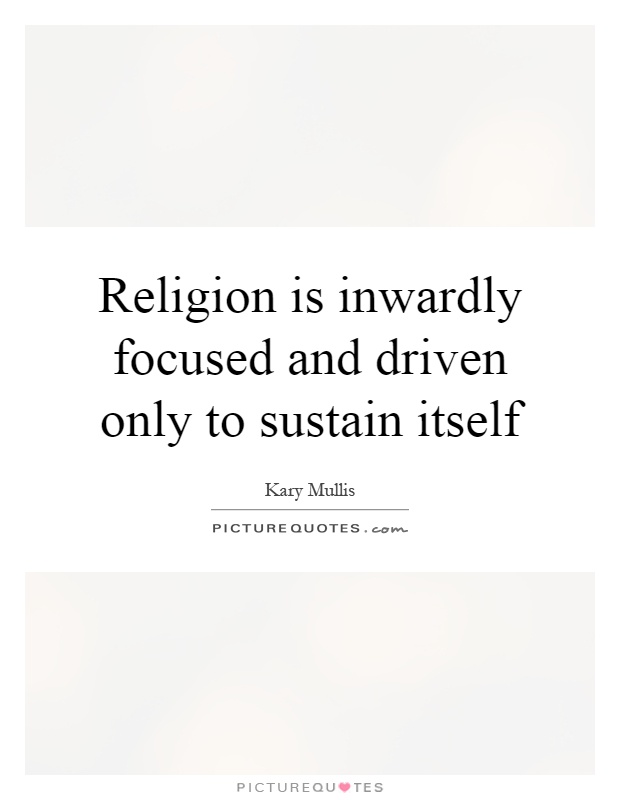Religion is inwardly focused and driven only to sustain itself

Religion is inwardly focused and driven only to sustain itself
Kary Mullis, a Nobel Prize-winning biochemist, is known for his groundbreaking work in the field of molecular biology, particularly for his invention of the polymerase chain reaction (PCR) technique. Mullis was also known for his unconventional and controversial views on various topics, including religion.Mullis was raised in a strict Christian household, but he later rejected organized religion and became a self-proclaimed "mystic." He believed in the existence of a higher power or cosmic intelligence but rejected the idea of a traditional, organized religion. Mullis often spoke about his belief in the interconnectedness of all living beings and the universe, and he saw science as a way to explore and understand this interconnectedness.
In the context of the statement "Religion is inwardly focused and driven only to sustain itself," Mullis' views on religion can be seen as a reflection of this idea. Mullis believed that organized religion was more concerned with maintaining its own power and influence than with truly seeking spiritual enlightenment or understanding. He saw religion as a human construct that often served to divide people rather than bring them together.
Mullis' rejection of organized religion can be seen as a rejection of the idea that religion is solely focused on sustaining itself. Instead, he believed that true spirituality and connection to a higher power could be found outside of traditional religious institutions. Mullis' views on religion were a reflection of his belief in the importance of personal exploration and questioning of established beliefs.












 Friendship Quotes
Friendship Quotes Love Quotes
Love Quotes Life Quotes
Life Quotes Funny Quotes
Funny Quotes Motivational Quotes
Motivational Quotes Inspirational Quotes
Inspirational Quotes